What do we owe Matthew Shepard?
Matthew's death 25 years ago was a stark reminder of the hatred poisoning America.
Matthew Shepard is remembered for the future he was denied.
On a cold October night in 1998, two young men drove Matthew, then a student at the University of Wyoming, outside city limits. They tortured him and left him to die, tied to a fence that overlooked Laramie. The cyclist who found him 18 hours later mistook Matthew for a scarecrow.
The sheer brutality of the attack would shock people across the world. Matthew spent almost a week in a coma — his injuries so severe and thorough doctors could not operate on him — before dying in the early morning hours of Oct. 12. By that time, he was a legend — a bloody demonstration of Wyoming’s attitude toward gay people, or maybe the American attitude toward anyone viewed as different. In the years since, he has come to symbolize even more.
But for his mother Judy Shepard, Matthew was — and always will be — her lost son.
“There’s no such thing as closure,” Shepard said. “This is ever present in your mind. When you fix his favorite foods or you hear his favorite music, or you come across something that reminds you of him — pictures from grade school or home movies or favorite movies, anything like that, it just brings it rushing back. And I am not prepared to deal with that surprise.”
Shepard knows her son could have been so many things if he had not been cut down in the prime of his youth. But in death, he became an icon. His brutal demise triggered a moral reckoning in Laramie and put a mirror to America’s treatment of its gay and lesbian residents.
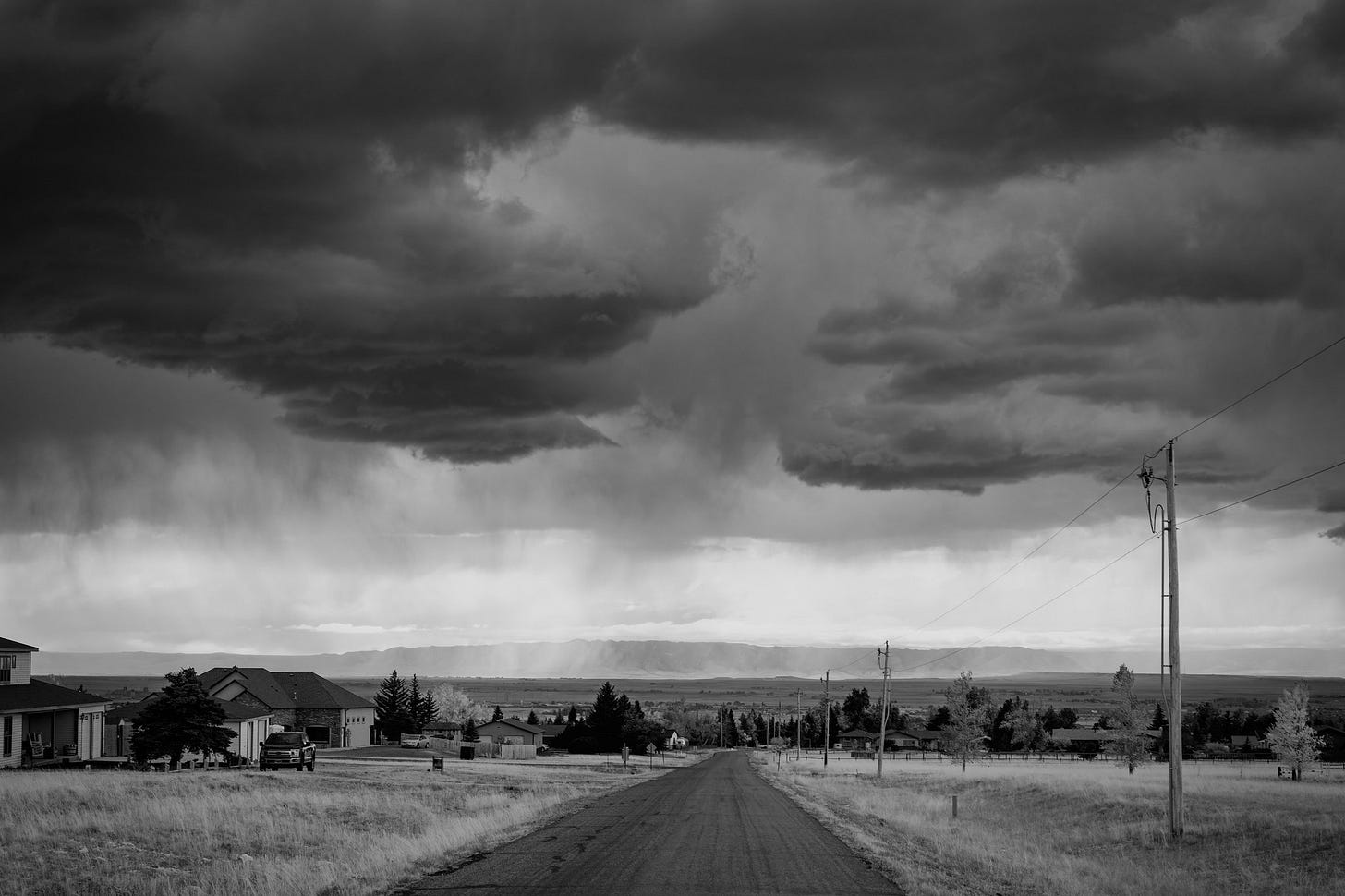
The U.S. is an overall more accepting place than it was in Matthew’s time. But of course, gay liberation has come in fits and starts. If the arc of the moral universe bends ever more toward justice, the curvature is sometimes difficult to see. LGBTQ Americans face increasing assaults on their human rights, while transgender folks in particular face unprecedented levels of deadly violence.
The murder of Matthew Shepard raised significant questions for Laramie, for the U.S., and for everybody fighting for a more accepting future. Community members, activists, artists and journalists have chipped away at those questions for 25 years. Even if there are no easy answers, their investigations have led to a clearer understanding of how hate simmers and boils over, and what can be done to cool it off.
In the future Matthew never got to see, the long struggle continues.
Dark though that struggle is, those who carry forward Matthew’s legacy have shown that the path to a better world is illuminated by inextinguishable queer joy — from the satisfaction of a successful protest to the ecstasy of a flamboyant drag show.
And the future, according to Judy Shepard, is even brighter. A quarter century after the death of her son, Shepard looks ahead, spying hope where others see only doom.
“The only way to become good is to move forward in a positive way, and the only way to do that is to accept everyone as human beings,” she said. “The only road I see out of this is an awakening that being unkind just doesn’t work. We don’t become a nation of prosperity and growth and success unless we take care of one another.”
1. Angelic Revolt
Organized bigotry descended on Wyoming after the death of Matthew Shepard. It first appeared the day of Matthew’s service and made plans to return for the trials that spring.
Jim Osborn, then a student at the University of Wyoming, was one of the first to learn that these hateful forces planned to march on Laramie.
A fax from the Westboro Baptist Church informed university officials that hate preacher Fred Phelps and his band of bigoted protesters would be landing in Laramie, set on picketing the murder trials with signs denigrating the murdered young man.
The forewarning was typical of the Westboro Baptists, who aimed to drum up media attention for their demonstrations.
Osborn, at the time studying to become a teacher, led the LGBT Association student group. He said Phelps’ fax came with cartoons.
“One of the student officers of the group — they had referenced her by name in one of these cartoons and had drawn a little caricature of her,” he said. “The part I always felt was really disconcerting was getting these faxes where your people are being named — that Phelps and his church were coming to target you with one of their protests.”
Osborn knew they had to oppose the bigots gunning for Laramie. But he was also aware of Phelps’ lust for media attention — and his penchant for lawsuits — so Osborn knew those acting in Matthew’s memory would have to be careful.
“We didn’t want to devolve into just shouting and name-calling the same way that they were,” Osborn said. “We really wanted to take the high road and have our message be one of love and peace and acceptance.”
He started plotting with his ally, Romaine Patterson, another personal friend of Matthew’s.
Patterson was living in Denver at the time, but she had grown up in northern Wyoming.
“I came out as a sophomore in high school because I didn’t really know better,” she said with a laugh. “And it was, I mean, listen, I would be lying if I said high school was easy for me.”
Despite her young age, she served as a sort of elder gay — a beacon for young people in Wyoming too frightened or oppressed in their own homes and communities to come out publicly themselves.
Patterson was known to 90s high schoolers as the Lesbian of Tongue River — a reference to her high school’s name and certainly nothing more. Young people, as they came of age amid an intolerant time, came out to the Lesbian of Tongue River, a safe person who could offer acknowledgement or advice.
“In fact, I remember (being in) Cody, Wyoming, I was with the speech team, and seven of the 12 of their speech team members were gay,” Patterson recalled. “And one by one they all came out to me, but they didn’t come out to each other. And I remember at a speech, I got them all in a room and I was like, ‘I just want to tell you guys you all have something in common with each other, and with me.’ And they all started looking at each other. And I’m like, ‘Yeah. That.’ And it was like this ‘aha’ moment for all of them.”
Matthew’s therapist put him in touch with Patterson, knowing it would be good for the young man, then a student at Casper College, to meet and befriend other young gay people. They became fast friends.
“Matthew was a wonderful person to have as a friend,” Patterson said. “He was a super generous and kind person and he always went out of his way to do things for his friends. He was just a very, very kind person.”
Eventually, Patterson moved to Denver. Matthew did too, seeking a gay community. He had had a supportive home life, but that’s not something young gay and transgender people can take for granted. Many are cast out of their homes by bigoted parents, an occurrence so frequent it has led to an overrepresentation of LGBTQ youth among the homeless. Even when they are not actively put on the streets by hateful parents, many do not feel safe at home, or do not feel comfortable being their full selves around their family of origin.
“Found family” is a concept familiar to many in the wider queer community. And it’s what Patterson, Matthew and others built in Colorado.
“I was basically his only friend in Denver for a good long time,” Patterson said. “He hung out with my girlfriend and I and you know, it basically was like extended family. I’ve always kind of been this person who adopts people into my life and basically they become friends who are family.”
Matthew decided to enroll at the University of Wyoming during the summer of 1998, and he moved up to Laramie in time for the fall semester.
Less than two months into that semester, Matthew had been killed, his murder had made him famous, and the eyes of the world were on Laramie.
Patterson and her girlfriend attended Matthew’s memorial service amid a “horrible” winter storm.
Phelps and his church members — representing the very same zeitgeist that pushed Patterson’s people into closets — were there, waiting across the street, ready to confront funeral-goers with hateful, spiteful messages about the man they were grieving and all others like him.
“I was so disgusted by their behavior, and I just couldn’t understand how they were allowed to do this type of protest,” Patterson said. “I had an umbrella and every time my girlfriend was looking at the protesters, I dropped my umbrella so she couldn’t see them.”
Patterson remembered her quick thinking with the umbrella months later, ahead of the murder trials, as Laramie awaited Phelps’ return.
She linked up with Osborn, who was also preparing for the return of the Westboro Baptists. The two started brainstorming.
In April, Phelps was back, his congregation in tow. He settled in before the Albany County Courthouse, presumably confident that people would keep their distance, or debate him, or train their cameras at his signs — one way or another feeding his desire for attention, fame and controversy.
Despite his professed beliefs, he almost certainly wasn’t expecting an angelic horde.
“We were talking about how Fred Phelps uses the Bible as ammunition to hurt and harm people and to spew hatred,” Patterson said. “And so then we started talking about how, in the Bible, angels are usually the message bearers to mankind. When God needs to tell us something, he sends an angel.”
Osborn, Patterson and at least half a dozen others arrived, resplendent in pure white robes, their tall, wide wings rising above them, bed sheets stretched over a shoulder harness and PVC piping. They were messengers bearing the almighty dictate that Phelps and his ilk could go to hell.

The angels surrounded the hate preacher and his gang, silently, peacefully blocking his signs and his message with their bodies, their earplugs blocking out whatever response Phelps had to offer.
“They didn’t know what the hell was happening,” Patterson said.
Osborn said it was important, not just for the LGBTQ community but for all of Laramie, to counter Phelps and his bigotry.
“We didn’t want his messages and hatred to be the last things that people saw on the news that night,” he said. “We didn’t want people to see that and assume that was the attitude here in Laramie, that people (here) felt the same way. We wanted to make sure that we took a stand against his hatred.”
Take a stand they did, demonstrating with a striking visual flare that hate could be drowned with love and solidarity. Angel action took on a life of its own, and angel protesters began cropping up wherever Phelps appeared. Angels stood vigil once again following the Pulse Massacre — the deadliest assault ever committed against LGBTQ Americans.
The angels flew on, Phelps retreated, and the killers were convicted, sentenced and spared — by grieving parents who cast aside revenge and chose to end the cycle of violence. But Laramie and its people faced difficult questions about why this crime had happened, why it happened here, and if anything could be done to keep it from ever happening again.
The very loud bigotry Phelps brought to Laramie had been successfully, thoroughly routed by direct action on the part of Laramie’s queer community and its allies. But quieter bigotries would require more delicate work.
2. Tribal Reckoning
Even before he died, Matthew Shepard had the world’s attention.
After the attack, as he lay unconscious in an intensive care bed, the media descended on Laramie. Former Wyoming Public Radio News Director Bob Beck said it was unlike anything he had seen before. Beck found himself elbow to elbow with national reporters, many of whom immediately saw the crime as emblematic of a backwards western culture.
“You find yourself starting to defend the town a little bit,” Beck said. “You didn’t really want to be in that position.”
But it wasn’t as simple as a national perception vs. a local perspective. The people of Laramie themselves struggled to make sense of their homegrown tragedy.
“A lot of the community was — I think ‘embarrassed’ is probably the right term,” Beck said. “Or shocked (and) hurt by this. You know, I’m a community member, and we’re all sort of like: What the hell happened? Who are these guys?”
The guys, the killers, Aaron McKinney and Russell Henderson, were local residents, well known by many throughout the small city. And somehow, these two sons of Laramie had committed heinous, shocking acts against a defenseless local student.
McKinney’s defense would claim that he snapped when Matthew touched his thigh — that this occurrence inspired his brutal response.
Murder case defendants sometimes use this “gay panic” defense — or its cousin, the “trans panic” defense — to contextualize their violence.
“When a defendant uses the LGBTQ+ ‘panic’ defense, they argue that their violent actions are both explained and excused by their victim’s real or perceived sexual orientation or gender identity/expression,” writes the LGBTQ Bar Association. “The goal of this strategy is to employ homophobia and transphobia to persuade a jury into fully or partially acquitting the defendant.”
That strategy was not successful in Laramie in 1999, but it’s still allowed in a majority of the states and has yet to be eradicated from American jurisprudence.
At the end of the day, McKinney and Henderson had tortured and murdered a member of their community. The blood was on their hands, and they had earned their life sentences.
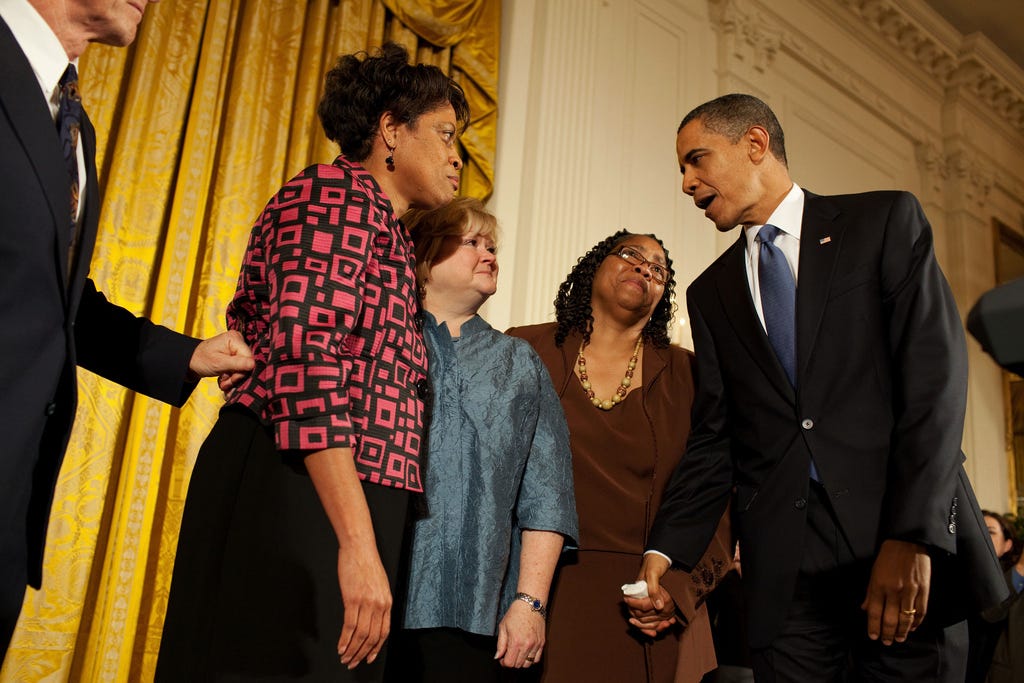
But outside the courtroom, Laramie residents were left to wonder if there was blood on their hands too.
The question is this: Was the murder of Matthew Shepard an aberration, a departure from the tolerant spirit of the Laramie? Or was it the logical end result of a community failing to grapple with its own biases?
Jeffrey LaHoste and the other members of the Tectonic Theater Project explored the tension between those differing interpretations in their celebrated play The Laramie Project.
“Some people in the community wished to distance themselves from the crime and say: I didn’t have anything to do with this; this was the work of a couple of people … things like this happen everywhere,’” LaHoste said. “And then there were other people whose stance was somewhat different, saying, ‘How did we create a community in which this might happen?’ And I think both of those positions are defensible. And I think both of them have their merit.”
The New York-based troupe arrived in Laramie not long after the murder, seeking out and conducting long-form, qualitative interviews with a wide range of Laramie residents. They financed the first of several trips to Wyoming with the earnings from their last play, Gross Indecency — an historical work highlighting the anti-gay persecution of Oscar Wilde.
LaHoste said they were moved by what they were seeing in the news about Matthew and about Laramie.
“It was really an experiment,” he said. “I think we had 10 people on the first trip, and it was barely four weeks after Matthew Shepard’s death. And we just took that chance.”
After that first trip, the troupe compared notes.
“It was clear that there was something in the words that people in Laramie shared with us,” LaHoste said. “And it was fairly clear, even then, that the play should be about the town and not so much about the events. The events are part of the play. But the play is really a portrait of a town in the aftermath of a terrible crime and also terrible, unwanted attention being focused on it by the media.”
Neither the play — nor the movie adaptation that followed — decisively answers Laramie’s fundamental question. It refuses to definitively state whether and to what degree Laramie shares McKinney and Henderson’s guilt.
Instead, it elevates and balances local voices, presenting the uncomfortable tension in all its haunting, frustrating complexity.
LaHoste said that tension still exists 25 years later, and not just in Laramie.
“Those are very different stances towards the world — one being more communitarian, and the other one being more individualistic,” LaHoste said. “And I think that is really a sort of micro-view of a tension that plays out in American culture generally. How much do we owe each other? Where does my liberty end and yours begin?”
How much do we owe Matthew Shepard? How responsible are we for the actions of our neighbors if we have let casual bigotry slide, if we’ve used “gay” as a synonym for stupid, if we’ve taught our children — directly or indirectly — that straight is right and gay is wrong?
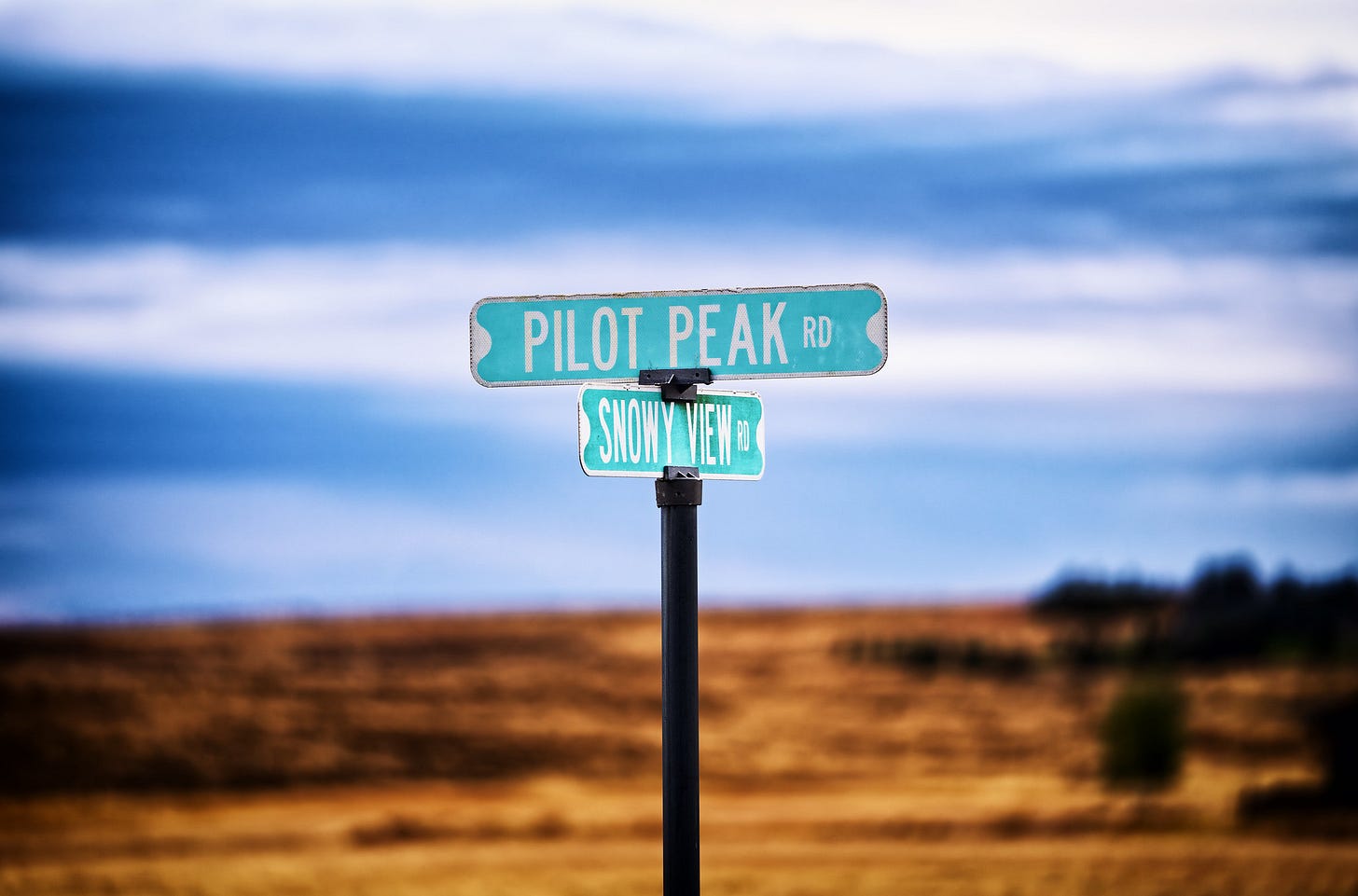
Whatever complicity Laramie maintains, Bob Beck said the murder did inspire a subtle but noticeable shift in the culture.
Not long after the murder, Beck hosted an hour-long call-in show on Wyoming Public Radio, during which locals could share their thoughts, work through the very same tensions that LaHoste and his fellow thespians would later notice and explore.
“(The murder) really made people think,” Beck recalled. “I know some law enforcement people — who to this day are not always so great with the LGBTQ community — but a number of them really thought maybe the way they’d been doing things was wrong, and shared that with us.”
Others struggled to square their own harsh opinions about the activities of gay people with the demands of empathy and justice.
“We heard from a lot of people on that call program,” Beck said. “In 1998 in Wyoming, there was a belief that you decided to be gay, and I think people maybe started rethinking about these things and maybe learned a little bit more about it. And I do think that people were a little more careful. I know some school administrators and the university president and others urged people, ‘Let’s watch our mouth, let’s watch our language.’”
It had been common to use “gay” as an insult and to make other casual, derogatory comments before Matthew’s murder. Beck said that didn’t happen so much after, and when it did, it was called out by others.
“I think we all started thinking about people that maybe we knew over the years,” Beck said. “And we wondered if we had ever said anything unfortunate.”
Clearly, Laramie has improved on that front. As someone who lived through those more prejudiced years — and who wondered about their own part in fostering a culture where hate could bloom — Beck took joy in the clear indicators of progress.
“I was driving to campus three or four years ago, and there’s this couple of young men that I would see around town from time to time, and they were walking hand-in-hand and wearing very bright colors and just enjoying the day,” he said. “And I just remember thinking we’ve come a little ways. There was a time you wouldn't have done that in Laramie.”
Having witnessed that evolution, Beck said he believes Wyoming will accept transgender people someday, too.
“That tells me we’ll finally get there at some point, but hopefully it doesn’t take a tragedy to turn it around,” he said.
LaHoste said it’s been fascinating to watch Laramie — this tribe of people united by history, place and wind — grapple with its role in its most famous tragedy. Especially, he said, because we don’t ask that of other places.
“The fact that many people did use that as a means to transform the culture and themselves is really a testament to the townspeople,” he said. “Murders happen all the time where I live in New York City and you know, I don’t feel responsible, and I don’t feel like, ‘Oh, better take a look at myself, and make my community better.’ So in many ways, Laramie is exemplary.”
After such a horrific tragedy, a reckoning was needed.
But Matthew’s legacy is about far more than his death or Laramie’s guilt. After all, meditating on guilt is only as useful as the justice it feeds. And amid so many other tragedies, the cause of justice demands something more of the people who seek it.
3. Legacy of Love
Jim Osborn once donned angel wings to counter hate. Today, he wears high heels to save lives.
Four years after Matthew’s murder, Osborn and the other members of a small nonprofit board hosted the first of what would become an annual Drag Queen Bingo. It was a fundraiser for Wyomingites living with HIV and AIDS, who often have to travel significant distances to reach the nearest medical specialist, regularly incurring transportation, lodging and other costs on top of the bill for the healthcare itself.
“(Drag Queen Bingo) started off as just a handful of folks,” Osborn said. “We had maybe 30 people or so show up. It was just kind of a fun de-stressor event and a way to raise just a little bit more money for the Wyoming AIDS Walk.”
The drag queens in those early days came up from Denver each year, lending their talents for the charitable cause. But the date of Laramie’s Drag Queen Bingo overlapped with a major drag event hosted in Denver by the Imperial Court of the Rocky Mountain Empire — another drag organization raising money for charitable, social and political causes in Colorado.
The folks in Laramie couldn’t fault them for that, but their bingo was left without queens.
“So in 2005, a couple of us who were on the executive board for planning the AIDS Walk took it upon ourselves to become drag queens,” Osborn said. “We had to step up and step into the heels, as it were.”
They spent a year preparing for their first bingo.
“We were studying everything,” Osborn said. “How do you do this? What do you do about that? Where do you find shoes? Who will fit you? Where do you get your wigs?”
They got some guidance from the Denver queens — who, for example, told them to get wigs at Studio Lites — and from Bob Hooker, a fellow board member who had done drag years ago in Baltimore.
The newly minted queens did a practice run, performing their first show at a downtown bar.
“We did that at the Cowboy Saloon, complete with a smokeless tobacco sign above our heads and a mechanical bull over in the corner,” Osborn said. “And then the next spring, we were the stars of bingo.”
Thus, the Stilettos were born.
The annual event is now wildly successful. This year, the event sold out completely in five hours, filling a ballroom in the Marian H. Rochelle Gateway Center and raising $44,500.
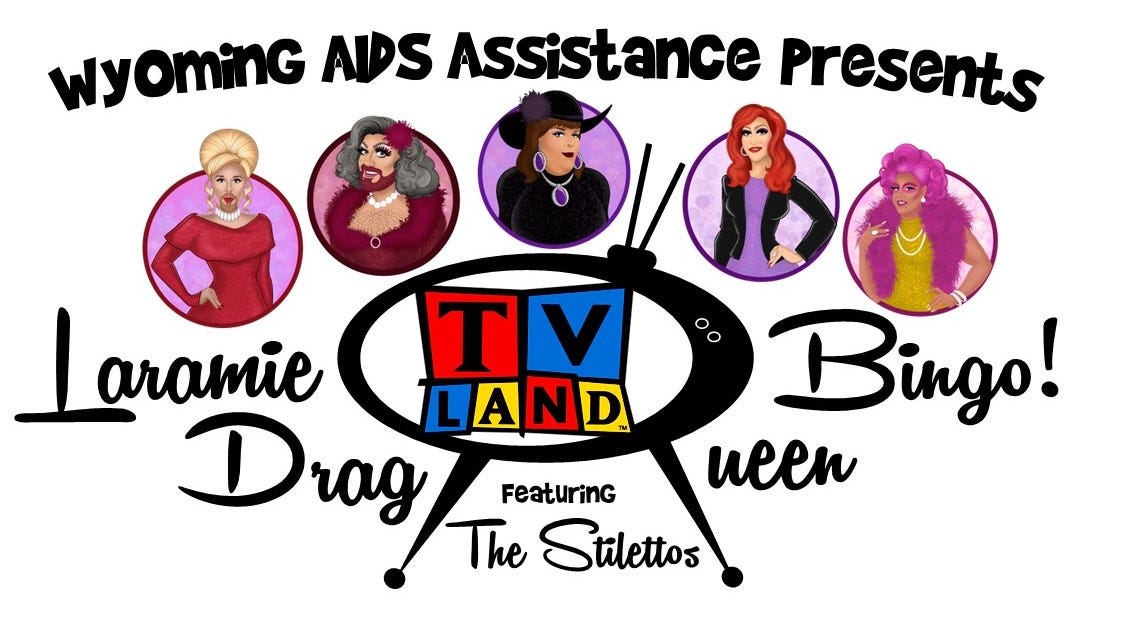
HIV transmission is not limited to the gay community, but it has become integrally linked to the struggle for LGBTQ acceptance in the United States. It spread in that community first, and the research, acknowledgement and other resources that could have saved lives were withheld — largely because leaders, including President Ronald Reagan, did not take the epidemic seriously, or else did not care about gay lives.
Even after AIDS started gaining recognition, members of the gay community feared not just the disease itself, but also the stigma of the disease. Because it was still viewed as a “gay plague,” they could be outed if their diagnosis was known. Add to this the rampant conspiracy theories and misinformation about the disease that led to social isolation. People who incorrectly believed they could catch AIDS from, say, hugging a person with a diagnosis kept their distance.
Today, after decades of horror and loss, there are highly effective treatments. But in a place like Wyoming, specialists are far and few between and difficult to reach — hence the necessity of the Stilettos’ fundraising.
The danger of AIDS, the depravity of the prejudice surrounding it, the daring work and reliable success of Drag Queen Bingo, the challenges that remain unsolved — all mirror the wider struggle for queer liberation that’s taken place in the last four decades.
Cathryn Oakley, state legislative director for the Human Rights Campaign, said the years since Matthew’s death have seen unprecedented gains.
“Having marriage equality be the law of the land was absolutely not something I think that we could have even thought about 25 years ago; and yet, it’s a reality,” Oakley said. “I also think that 25 years ago, we would have hoped to be in a place where there is more general understanding of LGBTQ folks than there is right now. And particularly, we would have hoped to have had more acceptance around what it means to be transgender and gender-nonconforming.”
Gay and lesbian Americans are not totally in the clear. They still put up with a great deal of prejudice and hate, including in Wyoming. A queer couple in Wapiti were told to leave by a posse of neighbors because “their kind” wasn’t welcome here. The late Senator Mike Enzi suggested to schoolchildren that a man wearing a tutu out to the bar should expect violence because he “kind of asks for it.” And a library director in Gillette was forced out of her job for refusing to remove books featuring gay characters.
But it’s difficult to deny that life is better — for most gay people in most parts of the U.S. — than it was for gay people 25 years ago, or even 10 years ago. Matthew Shepard ultimately lost his life to anti-gay violence, but it was far from the only discrimination or prejudice he faced during his short life.
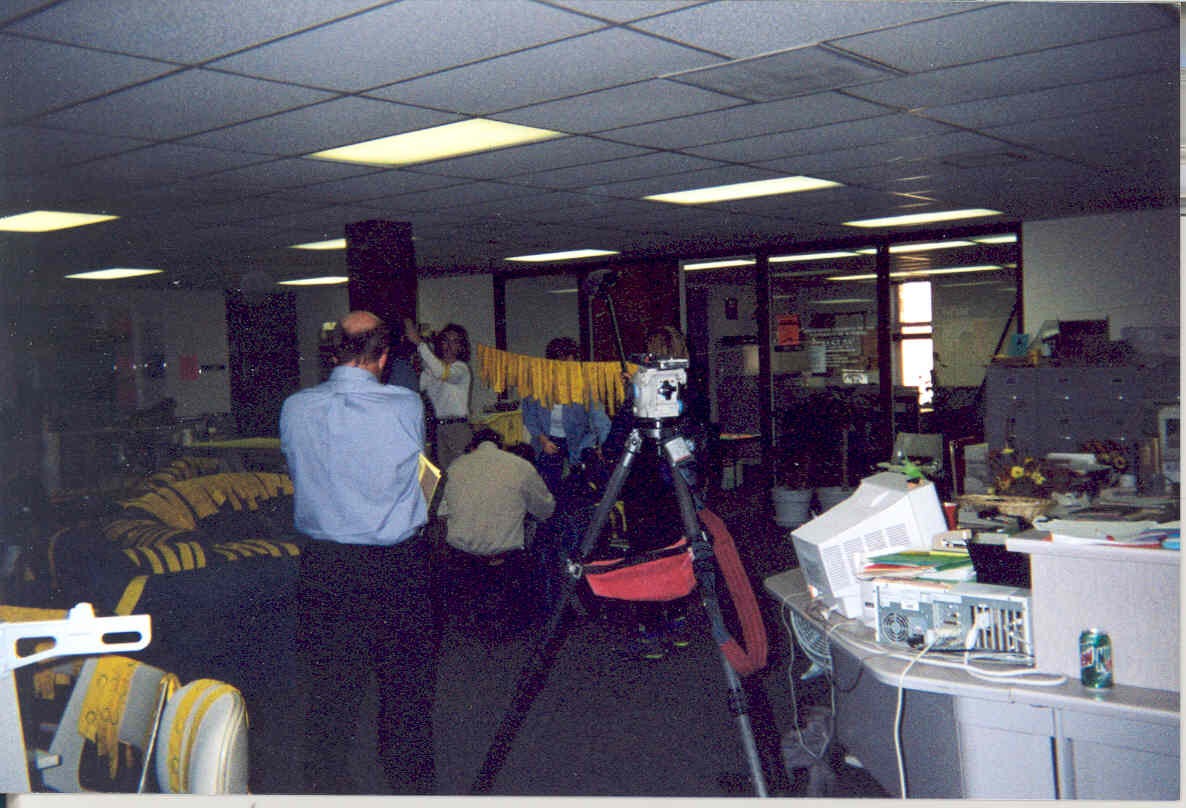
Matthew’s mother, Judy Shepard, said society now treats its gay people far better than it once did.
“I’m very glad they’re not going through the same thing (my son did),” she said. “I think we tend to forget that the 90s — even the late 90s, even the early 2000s — were filled with bad jokes and stereotypes. Really, the only thing that was common knowledge about the gay community was the AIDS epidemic.”
Shepard said that changed because brave individuals came out to their families, friends and workplaces. Gay people became more visible in the news and on TV.
“But it took people to come out and tell their stories, really, for people to understand,” she said. “Thank God for Will and Grace. I mean, inviting them into your living room, once a week, just opened so many doors — unconsciously even, I think. Even though Will and Grace and Jeff and Karen were all stereotypes, they still acquainted the world in a larger way with the community and showed them there was nothing to be afraid of.”
In the wake of the murder 25 years ago, the immediate threat of loud, visible bigotry required direct, dramatic action in the form of the angelic revolt. Osborn, Patterson and others took it upon themselves to publicly demonstrate that preachers bearing “God Hates Fags” signs would not be tolerated — that their loud-mouthed hatred was unacceptable on every level.
In the months and years that followed, the community itself had to widen its view beyond the obviously objectionable behavior of the Westboro Baptists. The community had to take on the significantly harder work of examining itself, identifying and rooting out its latent biases.
But there’s one more step to this generational process of reflection and reckoning.
The community — like every community in the U.S. — has had to step back even further and take an even broader view.
“Live and let live” has been the unofficial state motto for longer than any of Wyoming’s residents have drawn breath. But it’s an incomplete moral philosophy that says little about the positive actions we owe each other.
Is it enough to say we will not be prejudiced against gay people? Or are we required to stand and fight for the eradication of anti-gay prejudice in others, in our culture, in our law?
Is it enough to stop ignoring the AIDS epidemic, or must we support efforts to confront it? Is it enough to say we won’t stand in the way of transgender acceptance, or must we fight for that political end?
That all sounds like a dire call to action, and maybe it is. But as the Stilettos demonstrate, taking part in the struggle for liberation is not just a sacred duty — it’s also a hell of a good time.
Performing as amateur queens was terrifying the first time they did it, Osborn said. But he believes in educating people about HIV/AIDS, encouraging people to get tested, teaching people how to be supportive neighbors, and connecting Wyomingites with the healthcare they need to live full, happy lives.
“I will go and make a fool of myself in a heartbeat for that,” Osborn said. “Because I know what it means to the people that we’ve been able to help over the years, what it has meant for them to know there’s somebody out there, somebody in their corner.”
4. Trans Liberation
The trans community has been marginalized throughout the modern era, but that oppression has accelerated in recent years.
The Human Rights Campaign tracks both violence against transgender people and legislative attacks on their rights, such as access to healthcare. The statistics are dismal.
Dozens of transgender Americans are murdered every year. The Human Rights Campaign has cataloged 330 murders in the last 10 years, but notes the number is likely higher. There have been 19 confirmed murders this year so far. The vast majority of transgender murder victims are Black transgender women, who account for more than 60 percent of this decade’s victims.
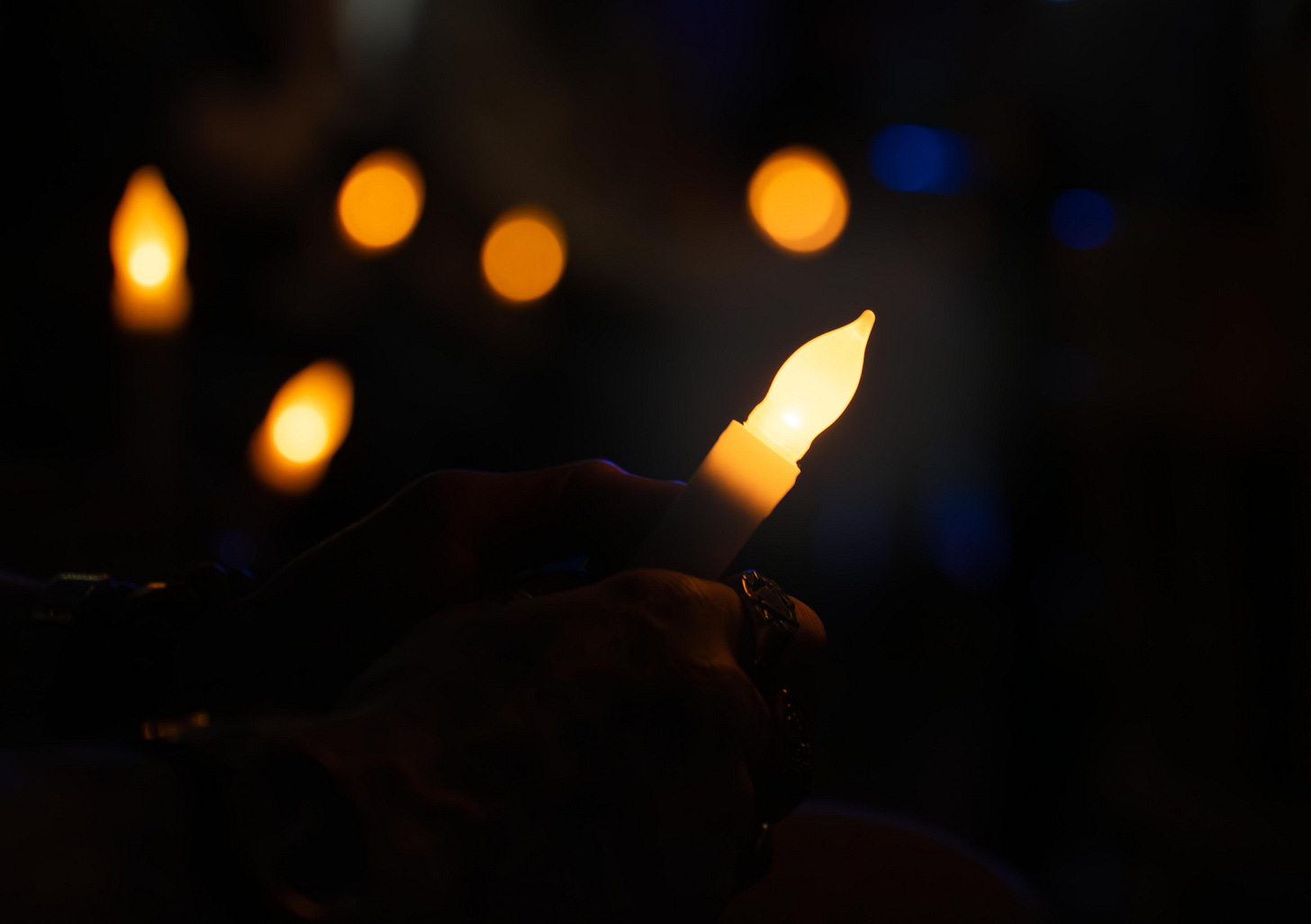
Beyond outright murder, there are various other ways that society discriminates against those who refuse to live as the gender they were assigned at birth. The number of anti-LGBTQ bills being introduced and passed at the state level has skyrocketed in recent years. The year same-sex marriage was legalized nationwide saw just 15 anti-LGBTQ bills introduced; this year saw a record 520 bills introduced, 70 of which were enacted.
Those include so-called “Don’t Say Gay” bills that limit what elementary school teachers can say in the classroom, bills outlawing gender-affirming healthcare, and bans on transgender women and girls competing in high school sports.
Oakley said the push is being driven by cynical politicians who view anti-trans discrimination as a winning campaign issue, and media figures who are drumming up anti-trans fear and panic.
“This rhetoric is growing and growing and growing,” Oakley said. “We’ve seen Proud Boys show up at school board meetings, we’ve seen white supremacists show up at Pride parades, we have seen ‘Moms for Liberty’ talking in just the vilest terms about LGBTQ folks at school board meetings around the country. We’re having books that even acknowledge LGBTQ people exist taken off the shelves, taken out of curriculum.”
Much of this rhetoric stems from the current “groomer” panic.
Prominent right-wing voices have told their audiences that LGBTQ folks are not to be trusted, that they are pedophiles who are targeting and grooming children, preparing them for sex with adults.
Those accusations are false. They’re also unoriginal. LGBTQ folks have long been slandered with the accusation that they are “sexualizing” or “grooming” the youth, recruiting those children into a life of sin.
This moral panic is actively harmful in a number of ways. The casualness with which these accusations are now thrown around might actually hurt real efforts to combat real instances of grooming. And the accusation, repeated and amplified throughout the right-wing media ecosystem, turns discomfort about LGBTQ folks into a more urgent hatred, into a feeling that’s more likely to inspire violence.
The rhetoric feeds the violence, but the violence also feeds the rhetoric.
The Club Q shooting last year turned a prominent Colorado Springs gay bar into a bloodbath that left five people dead and dozens more injured. In its wake, the same voices who boosted the groomer panic before the shooting doubled down in its wake, ramping up their talk of “grooming” in the days following the tragedy. Some even suggested the violence would or should continue.
The fear of mass shootings or other violence — such as the kind that killed Matthew Shepard — hangs over the LGBTQ community. In Laramie, queer University of Wyoming students are reminded of Matthew’s murder whenever the campus witnesses an anti-LGBTQ incident.
Last year, multiple queer events were disrupted by agitators in the span of a week. A campus preacher targeted an individual trans student with a table banner in the union. Six sorority members sued their national organization, asking it to kick out a transgender sister, the same student targeted by the preacher’s banner. Just this month, activists from Colorado plastered the campus with anti-trans messages, including some painted rocks that named the transgender student once more and some that were left outside the sorority house.
These sorts of incidents are more common than physical violence. But taken together, they paint a picture of a conflicted culture — where some members are striving to build on the progress of the last two decades while others are aiming to halt that trajectory or reverse it.
“I am very disappointed in my fellow Wyomingites who feel like this is the way to go — to discriminate against any of the citizens,” Judy Shepard said. “Maybe they don’t realize how hard it is to keep young people in Wyoming already.”
In particular, Shepard has watched the legislative side of the struggle. In 2009, she personally witnessed Obama’s signing of the Matthew Shepard and James Bird, Jr. Hate Crimes Prevention Act. In 2015, she got to celebrate when the U.S. Supreme Court nullified all remaining state bans on same-sex marriage.
But as a lifelong Wyomingite — Shepard said she loves the wide open spaces and abhors the idea of a crowd — she is disappointed in her home state.
Following the death of her son, Wyoming lawmakers debated the passage of a non-discrimination law. The bill got a hearty debate — which itself was viewed as progress by Wyomingites accustomed to silence — but it ultimately died on a tied 30-30 vote. The concept never got that far again and, to this day, the state lacks a non-discrimination statute protecting people on the basis of sexual orientation or gender identity.
In the years since Matthew’s death, Wyoming didn’t pass any pro-LGBTQ legislation. But it also didn’t pass any anti-LGBTQ legislation either.
That all changed this year with the passage of a ban on transgender athletes in girls’ high school sports.
It was a noticeable shift in Wyoming politics, from a more hands-off libertarian legislature that eschewed most “culture war” issues to a decidedly right-wing group of lawmakers happy to enter the fray. It was a shift that had been building for years, as right-wing candidates primaried and dethroned more traditional conservatives.
“They feel this is their moment in the sun,” Shepard said.
Does this political shift reflect a societal shift? Does the increase in violence, rhetoric and legislation represent a change in the way people view LGBTQ people, or has the posturing of leaders — and the reinvigorated groomer panic — simply brought simmering prejudices to the surface?
Is it all a backlash to the gains of recent years?
For her part, Oakley recalls the famous Martin Luther King, Jr. declaration that “the arc of the moral universe is long, but it bends toward justice.”
“Progress is not linear,” Oakley said. “And it certainly felt for a while like that arc was really bending in favor of LGBTQ people. And certainly the environment these days doesn’t feel that way. But I believe that we, in fact, are still on that arc and that things are moving forward.”

Judy Shepard, despite everything, shares this optimism.
For her, it comes down to the younger generations — the Wyomingites who grew up long after their state had reckoned with the murder of Matthew Shepard, the Wyomingites who came of age in a world that had just legalized same-sex love, the Wyomingites who — by and large — demand tolerance and acceptance from their family, their community and their government.
“They’re going to become the business owners, the CEOs, the judges, your fire chief, your police chief, your banker, your pastor,” Shepard said. “These kids are the future. And they understand that acceptance of all people is the way of the future.”
Undoubtedly, this is true. These kids are the future and thank god, because they’re better than us. But it’s also true that transgender folks can’t wait a generation. They are weathering an all-out assault on their existence in the here and now.
The attacks on our transgender brothers and sisters are not a tragedy of the past. They are a tragedy in the making. As Laramie faced a reckoning in 1998, we face a question today: How do we avoid further tragedy?
In the wake of Matthew’s murder, Laramie residents wondered about their word choice, their previous lack of sympathy, their non-involvement in any sort of liberatory movement.
It’s good to wrestle with the past, to ponder one’s guilt, to start the work of washing blood from one’s hands. But it’s better still never to bloody them. And better yet to don wings.




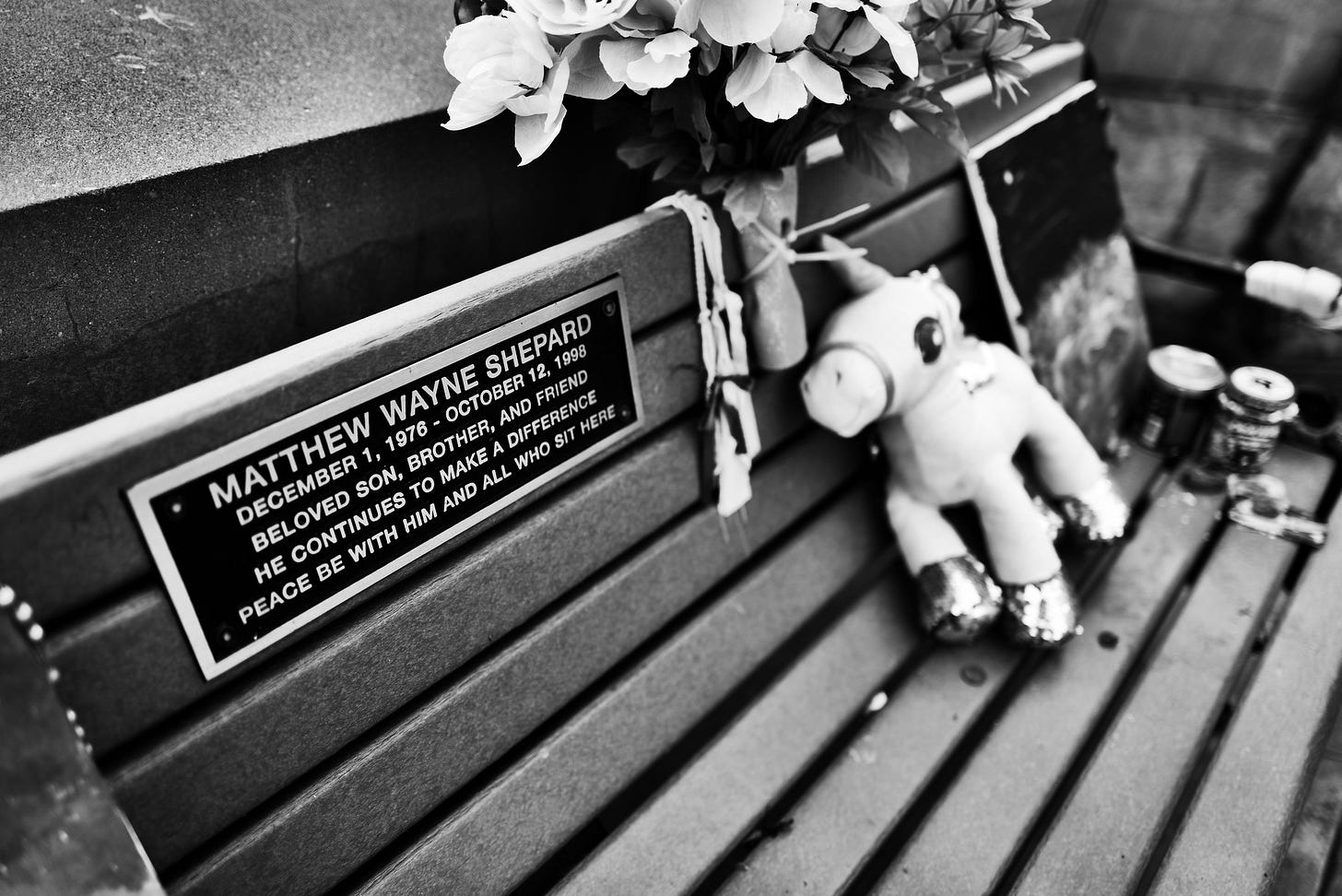
I think your retrospective on the tragic murder of Matthew Shepard's murder is heart rending, but journalistically incomplete. It fails to acknowledge, or even mention as supported assertions, the roles of crystal meth and the prior relationships with his killers as significant factors in Matthew Shepard's murder as extensively researched and reported by gay journalist Stephen Jimenez in his book "The Book of Matt." For starters, here is a 2013 NPR interview of Jimenez by Rachel Martin. https://www.npr.org/2013/10/06/226438148/book-of-matt-the-real-motive-behind-an-infamous-murder